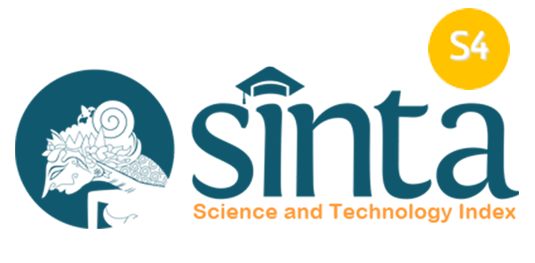Professionals’ Verdict on Video Instructional Package for Junior Secondary School Students in Basic Technology
Abstract
Advances in technology have brought instructional media to the forefront as the most radical tools of globalization and social development which have influenced the classroom teaching/ learning situation positively. Such technological breakthroughs are important landmarks in knowledge transfer. There are several acclaimed video packages which may not be perfectly suitable for instruction thus there is need to evaluate any package that should be used for learning. The main purpose of this research was to investigate experts' evaluation on the video instructional package for junior secondary school students in basic technology. This research was a research and development research method and the respondents comprised of 20 experts studying at the University of Ilorin, Ilorin, Nigeria. The findings established that Experts rated the video instructional package to be very effective and good for learning. It was however recommended that Computer literacy programme should be provided for both students and teachers for full integration of ICT resources in Science Education Programme.
Keywords
Full Text:
PDFReferences
Abidoye, J. A. (2015). Effect of multimedia-based instructional package on secondary school students’ academic achievement in Geography in Oyo State, Nigeria. Journal of Research in National Development, 13(1), 21-25.
Achebe, A. E. (2008). Effect of videotape instructional package on achievement and retention in food and nutrition at senior secondary school level in Minna, Niger State. Journal of Science Teaching and Mathematics Education, 1(1), 33-39.
Aggarwal, V., and Dutt, S. (2014). Effectiveness of multimedia presentations in acquisition of biological concepts. International Journal of Education, 3(1), 74-83.
Bumia, W. (2017). Emerging technologies for 21st century education─ strategies for the use of video mediated instruction. International Journal of Innovative Technology Integration in Education, 1(2), 47-56.
Carroll, L. S. L. (2017). A comprehensive definition of technology from an ethological perspective. Social Sciences, 6(4), 126.
Halliru Shuaibu and Muhyideen Muhammad (2018). Effects of Multimedia instructional strategies on academic performance of students in technical colleges in Kano State. British Journal of Education, 6(9), 1-24.
John, S., Musa, A. A., and Waziri, K. (2018). Multimedia instructional strategy and secondary school students academic achievement in biology. Journal of Scientific and Engineering Research, 5(2), 73-80.
Madani, R. A. (2019). Analysis of educational quality, a goal of education for all policy. Higher Education Studies, 9(1), 100-109.
Odu, O. K. (2013). Improvisation of instructional materials for introductory technology: The Delta state experience. Journal of Research in Education and Society, 4(2), 9-16.
Okenjom, G. P., Ogar, C. E., Akoloh, L., and Abidde, E. F. (2016). The status of basic technology in Cross River state junior secondary schools, Nigeria. African Research Review, 10(3), 124-131.
Satyaprakasha, C. V., and Sudhanshu, Y. (2014). Effect of multimedia teaching on achievement in Biology. International Journal of Education and Psychological Research (IJEPR), 3(1), 43-45.
DOI: https://doi.org/10.17509/ijotis.v1i1.37082
Refbacks
- There are currently no refbacks.
Copyright (c) 1970 Universitas Pendidikan Indonesia

This work is licensed under a Creative Commons Attribution-ShareAlike 4.0 International License.
Indonesian Journal of Teaching in Science (IJoTIS) is published by Universitas Pendidikan Indonesia (UPI)
 Indonesian Journal of Teaching in Science
Indonesian Journal of Teaching in Science



